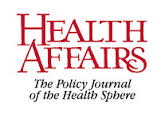Keep Medicaid Pay Boost, Docs Ask Congress
Physician groups and other health care organizations are asking Congress to continue the increase in Medicaid payments that primary care providers have been receiving for nearly two years.
 The pay raise, mandated by the Affordable Care Act, was instituted to help induce more primary care providers to serve Medicaid patients in anticipation of the reform law’s significant expansion of Medicaid eligibility. That pay raise, which brings Medicaid rates up to the level of Medicare rates and is paid for entirely by the federal government, expires at the end of 2014.
The pay raise, mandated by the Affordable Care Act, was instituted to help induce more primary care providers to serve Medicaid patients in anticipation of the reform law’s significant expansion of Medicaid eligibility. That pay raise, which brings Medicaid rates up to the level of Medicare rates and is paid for entirely by the federal government, expires at the end of 2014.
Now, primary care physicians have written to the leaders of the Senate Finance Committee and the House Energy and Commerce Committee asking them to extend the raises and add ob/gyns to providers eligible for the enhanced payments.
See their letter here.






